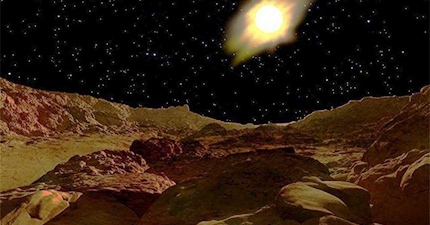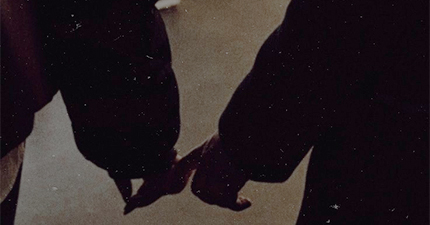As I write this article, my newsfeed is full of photos of destruction. It’s hard to tell what is what. If you look closely, you can see a difference between water soaked debris in Buncombe and the fire scorched rubble of Beirut. But the pictures look very similar. As it turns out, the end of the world looks similar no matter where you are.
I found out about the 1975 Banqiao dam collapse recently. I asked my parents about it and neither of them remembered. They would have been about twelve years old during the flood. Only when I press do the memories come out. An uncle got out right before the trains stopped evacuating. People killed each other over scarce resources and greed (or is it terror?). The whole province pulled together and made beard for disaster survivors. Bread is a good relief food because it’s something that you can break with other people. However, with no public relief, people trapped on their roofs drowned trying to reach for the bread being scattered above them.
A quarter of a million people died due to the flood of 1975. No one remembers this incident because the disaster was covered up. No relief workers were sent because it was covered up.
In Iowa, the Mississippi flooded in 1993. That was before I arrived there but I found myself remembering the flood with everyone else. The community pulled together and gave each other water. People still kept printed t-shirts from that time. They read “Remember 1993” and, when people wore the shirts, everyone told stories about what they went through that year. Even though I was not in Iowa in 1993, I was able to remember that year with everyone.
The flood of 1975 was said to be a once in a century storm. The flood was never supposed to happen despite what the engineers kept saying. The dam was supposed to hold up against everything except a once in a century storm. But once in a century storms don’t just happen once in a century. They are happening more often.
This weekend, there was a hurricane on a mountain. I want you to sit with the monstrosity in that sentence. A hurricane came and decimated a mountain. Mountains are not supposed to flood in this way. Entire towns went underwater.
There are many explanations for why a hurricane was able to decimate a mountain. There was a drought this year and that made the soil too hard to absorb water. Before the hurricane came, the area was already flooding due to too much rain. But still—hurricanes are not supposed to wreck mountains.
I see people pulling together. People ask neighbors for help on checking in on their family. Local breweries are distributing water for free while big box stores work to keep people out. People pass information about what roads are still remaining. The federal relief efforts are mainly aimed at programs and infrastructure. If you are a renter, you will have a hard time getting any relief.
It’s scary. An entire hospital in Tennessee was flooded and 50 people had to be evacuated by helicopter from the roof. A mother with twins drowned. People are calling for help for their parents and children before updating that their loved ones have drowned. A flood can kill this way—entire regions can get flooded out faster than even just one person can react. Many people, including the hospitalized and elderly, are not able to evacuate.
Buncombe reminds me of Beirut and reminds me of Banqiao. US citizens in Lebanon are left to figure out their own evacuations as bombs paid for with their own tax dollars explode all around them. Netanyahu gave an order to pulverize six buildings while sitting in a chair in New York City. More than a thousand people have been killed. Back in 1975, industrialization and development was the state narrative. People were allowed to starve and die as long as the nation, following the Soviet Union model, could militarize and develop. The grain producing regions were sacrificed for the grain consuming regions where the factories were built.
The sky is falling. It’s only rain. But it’s not just rain. The sky is falling because global flows of capital and infrastructure are prioritized above the potential of living people every single day.
This is the definition of climate crisis that makes the most sense to me right now: our world is disappearing and what appears in their place is infrastructure. Economic development and infrastructure. The militaries are prioritized above the potential of life. Every faction of the ruling class is very interested in developing technology for blowing up cities but none of them know how to repair a marsh. The Great Leap Forward, US imperialism, industrialization—they all share the same brain disease. Rob life so that we can afford to develop even more devastating weapons.
The technology gap between the weapons industry and people just living our normal lives is just so great. Why is this gap so big?
“Remember 1993.” What is strange to me is how forgettable once in a century storms are. We tend to remember things we have control over and forget the things that we don’t control. For example, most people tend to remember (and grimace over) things that they said in a conversation while forgetting things that the other person said. In life, we tend to remember our own dilemmas and choices. Maybe we tend to forget that the sky has fallen because we can’t control the sky and we can’t prepare for disasters on our own. The falling sky is something that we literally can’t form individual memories around.
We can’t remember a lot of things on our own. We need people to remember things with us to remember them at all. Without togetherness, memory and history just kind of disappears.
There is no Chinese memory of the 1975 Banqiao dam collapse. However, I was surprised to find that there is an American record. The Seattle based heavy metal band Nevermore made a song about the floods of 1975 in Henan province, China called The River Dragon Has Come. When the storm hit the dam, one of the dam workers cried out, “The river dragon has come!” Those were his last words. In Chinese cosmology, dragons symbolize the flow of water from rivers to clouds to mountains.
“Today the warning came in the flood/Architects and fools never cared for poor men's blood/Cursed to repeat the past they are/The river dragon swims upstream/They've built another wall,” the song goes. The song is a record of my ancestors' memories. I’m very moved by this song. A Seattle based heavy metal band almost certainly has never been to Henan but, for some reason, they decided to make this song.
Memory is collective but collective memory is kind of random. We forget things unless we have people to remember our memories with us. We are incapable of remembering things alone just like how we are incapable of responding to the falling sky alone. We force ourselves to remember what we remember urgently because we are afraid that everyone else will forget but, then, people surprise us.
I don’t have any family in Buncombe or Beirut or Nepal. I don’t have any family in Bangladesh where the floods hit in August or in Vietnam where the floods hit last week. But, like Nevermore, I’ll be keeping 2024 in my memories. These are not random events. Collective memory is not random. It is connected.
1 of 188
>>>


